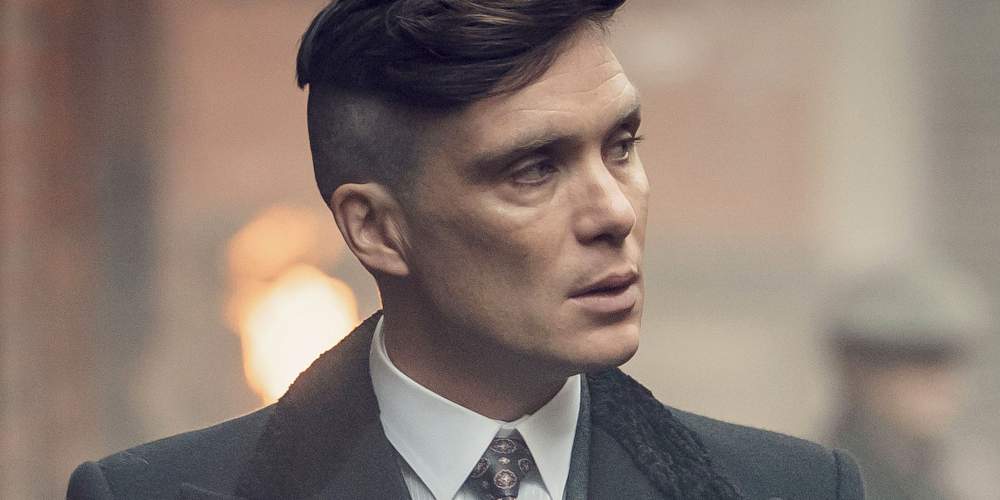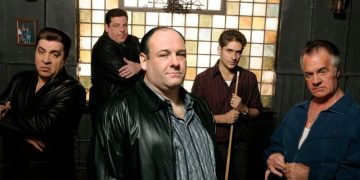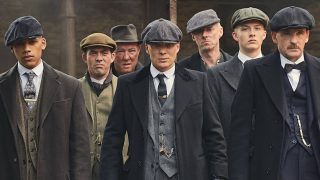As television grows increasingly more esteemed, its characters have become increasingly complex and cinematic. Or perhaps the greater depth in narrative and characters is what has spurred the embrace of TV as a legitimate storytelling medium.
Either way, today's TV protagonists—ranging from the organized crime boss Tony Soprano to the homicidal forensic technician Dexter—are less of the standard "good guy hero" and more of the morally ambiguous "not-so-heroic guy."
Gangsters and hitmen who are free from the confining rules of traditional heroic morals make for more interesting stories. And when a story needs to span multiple seasons, it's important that we stay hooked onto and intrigued by the characters.
To be clear, these neither-black-nor-white protagonists aren't exactly villains. We empathize and understand them on some level, enough to root for their success. That's why we call them anti-heroes.
Here are some of the best TV anti-heroes we've seen over the years. Let's explore how these anti-heroes break the mold and go their own way while convincing us to cheer for them.
1. Walter White (Breaking Bad)
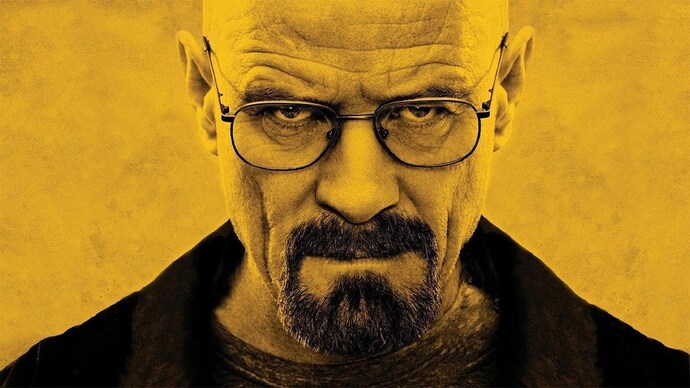
Walter White is the poster boy for TV anti-heroes. A quick Google search of "tv anti-heroes" will flood your screen with pictures of this bald and brooding chemistry-teacher-turned-drug-lord.
The whole premise of Vince Gilligan's Breaking Bad is how one man transitions from "good guy" to "bad guy." He comes close to being an all-out villain a few times, but the fact that he's always up against a greater evil is enough to qualify him as the protagonist.
After being diagnosed with lung cancer, Walter begins cooking meth to raise money so he can provide for his family after he's gone. His "growth, decay, and transformation" turns him into a notorious drug lord under the pseudonym "Heisenberg."
He's incredibly smart, able to manufacture meth with 99% purity. Yet while intellect is a common trait among heroes, Walter doesn't exactly use it for good. Instead of saving the world, he uses his skills to sell drugs and manipulate people for profit.
For all five seasons, Walter White has to keep his double life under wraps, making him well-versed in the art of pathological lying. He manipulates people like a true salesman, tricking them into doing whatever he wants in belief that it's all for the good of his family.
That may have been true at one point, but that got lost somewhere along the way. Nobody really needs $80 million in cash, do they?
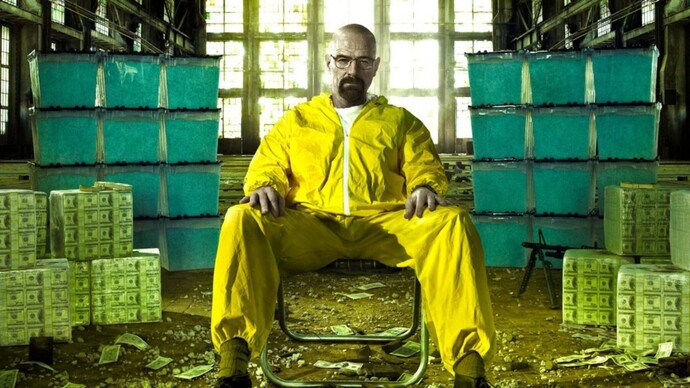
And then there's Jesse Pinkman. Jesse is to Walter as John Watson is to Sherlock Holmes: a sidekick who falls short in many ways, except that he's able to bring out a small shred of decency in him.
Despite their constant arguments, Walter is unable to tame Jesse's wild side in the way he does with most everyone else. Jesse is like a second son to Walter, and Walter needs him for street sales and seedy partnerships—so he goes to great lengths to save Jesse's life often.
The only time Walter ever shows true compassion is when it's for his deeply troubled, meth-addicted sidekick (and his baby girl, Holly).
But that compassion only goes so far. At one point, Walter watches Jesse's girlfriend choke to death and does nothing about it, as she's been something of an obstacle. He's a confusing guy.
And that's what makes him so compelling: we can never fully make out if he's good or evil. Although he kills people with ease now, there was once a time when he struggled with it, hesitating for hours before making up his mind to end a life.
Walter's serious nature is part intense, part terrifying, and part hilarious. He isn't the standard cut-out of a gangster, evidenced by when he faces off the Cartel in a beige shirt and tighty-whities—all with a straight face. Uniquely power hungry and arrogant.
Walter White thinks he's the cleverest guy in the room while being blind to his flaws, which ultimately prevents any true fulfillment. You can't help but feel a little bad for him, especially in those rare moments of authentic transparency.
He confesses to Jesse that he wishes he was dead, explaining how "there's more than one type of prison." He's bad, but there's something redeeming—however small—lodged deep within him. Hard to believe it's Hal from Malcolm in the Middle!
2. Sherlock Holmes (Sherlock)
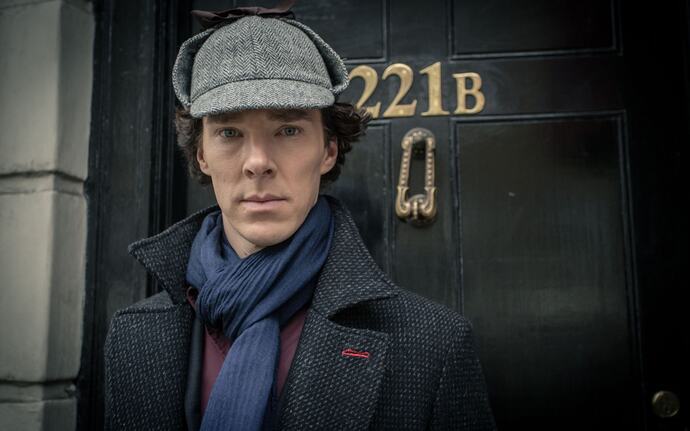
Benedict Cumberbatch rocketed to fame after he was cast in the lead role of BBC's Sherlock by creator Steven Moffat. Sir Arthur Conan Doyle's literary classic received a modern makeover, where our "high-functioning sociopath" treads the line between good and bad.
"I may be on the side of the angels, but don't think for one second that I am one of them."
Sherlock Holmes in Sherlock
And it's true—he's certainly no angel. He's bluntly honest, emotionally stunted, and helplessly obsessive in his investigations.
We initially engage with Sherlock for his impressive observations (like when he explains somebody's whole life story from a single stain on their tie) and accidental humor ("Don't talk out loud. You lower the IQ of the whole street."). But why do we stay?
Sherlock's arrogance is soon exposed as superficial. He builds a high wall around himself, resulting in a distinct lack of friends or family and a viewpoint where love is a "dangerous disadvantage."
Every once in a while, though, Sherlock's wall cracks and we're drawn in with hints of vulnerability. We want to delve deeper into the layers of his unique mind, which is creatively represented by Moffat using visuals in the form of a "mind palace."
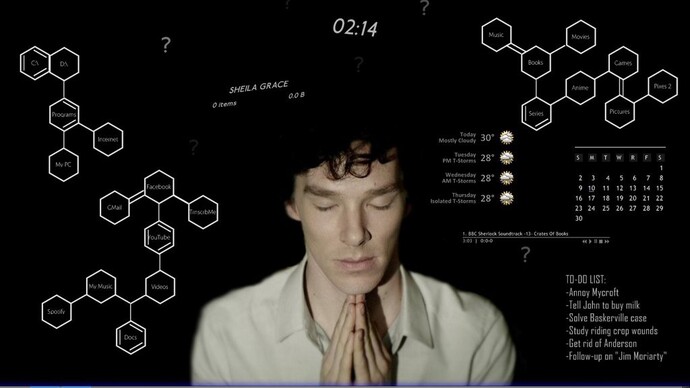
Sherlock can be read as having autism, which explains his genius powers of deduction and difficulties with emotion. But that doesn't mean he's devoid of feeling; he just has trouble accessing it.
John Watson (played by Martin Freeman) is the one person who puts up with Sherlock, unafraid to point out his flaws and even punch him in the face when the need arises. His relationship with Sherlock is beyond sweet, able to bring out Sherlock's humane side.
While Sherlock may have his issues—a low-key junkie who finds murder just a little too exciting—he ultimately works to save people. He's big-headed about his intellect but not about his morality: "Heroes don't exist, and even if they did, I wouldn't be one of them."
3. Thomas Shelby (Peaky Blinders)
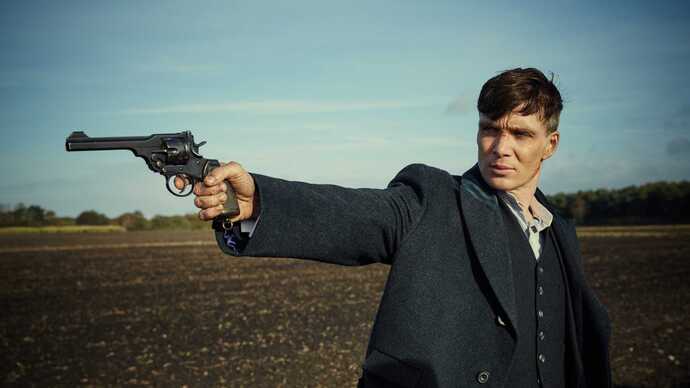
With the sixth and final season of Peaky Blinders in the making, now is the perfect time to rewatch Steven Knight's historical crime series and jog your memory in preparation for what's to come.
Set in post-war Britain, Peaky Blinders follows a family of gangsters as they rise through the ranks, from Birmingham to London to America. Along the way, they make a lot of money—and a lot of enemies.
One thing that made Peaky Blinders such a huge success—next to the impeccable writing and beautifully smoky visuals—is its characters. They might be a rowdy bunch of drunken, murdering gangsters... but we still love all of them.
And if there's one of the crew whom we love more than the rest, it'd have to be Thomas "Tommy" Shelby. He's the head of the Peaky Blinders gang, and he's as complex as characters come.
Tommy (played by Cillian Murphy) is the calm, collected, and surprisingly ruthless mastermind behind the ways of the Peaky Blinders. He's driven by a workaholic attitude and a propensity to kill, gamble, and make more money than he can ever spend.
He's unconventional in his hunger for power, given that he seemingly takes no pleasure in material goods (besides whiskey) and always puts his family above all else. But when gang newcomer Michael threatens his throne, he becomes obsessed with keeping his crown.
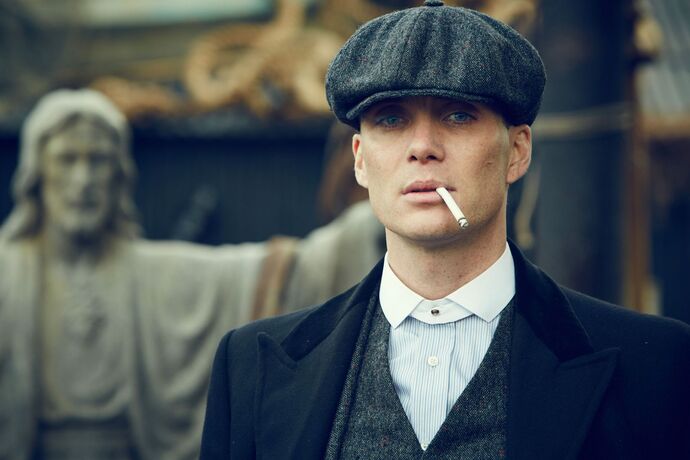
Tommy is grounded by his past spent in the Birmingham slums and the tunnels of World War I, awarding him the sympathy of working class men (and the audience). You can't deny Tommy is hard-working.
But his most redeeming trait is his intellect. Tommy is always thinking one step ahead ("When you plan something well, there's no need to rush.") and observing his enemies before he makes a move—which leads to some shocking plot twists for viewers like us.
And while he doesn't love many people—mainly out of self-preservation—when he does love someone, he loves them deeply. Unfortunately for Tommy, his past trauma often causes him to put distance between himself and those whom he cares for.
Tommy is plagued by nightmares brought on by the horrors he endured during the war, which enables him to stay detached from the violence of his work. Like his brothers, Tommy is often found cradling a glass of whiskey and chain-smoking cigarettes (or opium) for mental relief.
It's implied that Tommy was once a good man before the Great War, which he refers to as a "place below hell." Combined with the death of his wife Grace, Tommy eventually grew self-destructive—to the point where he's often held a gun to his own head.
In the end, we love Tommy despite his anti-heroic flaws, and it doesn't hurt that he has plenty of good deeds to balance out the bad: setting up charities and orphanages, going up against corrupt policemen, taking down Nazi politicians, all at the risk of his own life.
And he rarely indulges in his rewards, surrendering to the fact that "there is no rest for me in this world; perhaps in the next."
